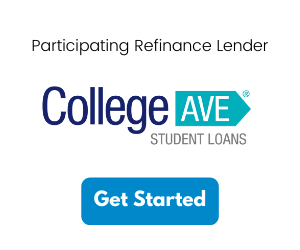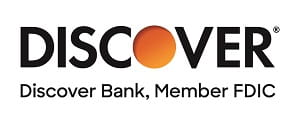Graduate school does not need to cost an arm and a leg. With the right financial aid strategies, you’ll get the most out of your education without going broke. Let’s look at how to apply for financial aid for graduate school, followed by other strategies you can employ to make your grad school dreams a reality.
- Federal student aid can be used to pay for graduate school and will typically come in the form of federal loans and work-study.
- Graduate students are eligible to borrow a Direct PLUS Loan
- Certain state governments offer additional assistance, scholarships, fellowships and loans specifically aimed at graduate-level studies.
How to Apply for Graduate Financial Aid
Get started on your graduate student aid application by filling out the Free Application for Federal Student Aid (FAFSA®), just like you did for your undergraduate education. Remember, when it comes to student loans, prioritize federal aid. Federal student loans offer benefits like extended deferment and forbearance options, income-based repayment plans, and potential loan forgiveness for eligible borrowers.
File the FAFSA
As a graduate student, you will want to file the FAFSA each year on or as close to October 1 as possible. You will use the same FSA ID you used when you filed the FAFSA as an undergraduate student. If you did not file the FAFSA as an undergraduate student, you’ll need to get an FSA ID before you can file online or via the app (recommended).
Note: You may also file the paper FAFSA, if necessary. Filing a paper FAFSA will result in longer processing time when compared to electronic filing.
When filing the FAFSA as a graduate student, you are most likely considered an independent student, which means you will not need your parent’s information on the FAFSA. And your federal student loan limits are higher than they were for your undergraduate studies (if you were previously a dependent student). Also, your expected family contribution (EFC) will be based on your income, not your parents’ income.
Federal Loans for Graduate School
There are two types of federal student loans available to graduate students, Direct Unsubsidized Loans and Grad PLUS Loans.
Direct Unsubsidized Loans
Federal Direct Unsubsidized Loans for graduate students, sometimes referred to as Unsubsidized Stafford Loans, offer a fixed interest rate of 7.05% for all graduate borrowers regardless of credit. This loan also offers flexible repayment terms. There is an origination fee of 1.057% that will be deducted from the loan amount upon disbursement. That means you will receive the amount you were approved for minus the fee. Your loan funds will be sent to your school.
The annual borrowing limit for an unsubsidized loan for grad school is $20,500. This limit increases to $40,500 for certain programs such as medical school and other health professions. In addition to annual borrowing limits, there are also aggregate loan limits that apply. There is no credit check for a Direct Unsubsidized Loan.
Grad PLUS Loans
The Grad PLUS Loan is another federal student loan available for graduate students. This loan comes with a fixed interest rate of 8.05% for all borrowers regardless of credit. To be eligible, however, you must pass a credit check to ensure you do not have adverse credit as determined by the Direct Loan Program. If needed, you may apply for a PLUS loan with an endorser, which is similar to a cosigner (i.e. someone who will share responsibility for your loan should you be unable to pay).
Before you borrow a Grad PLUS Loan, you should borrow as much as you can in unsubsidized loans. This is because the Grad PLUS Loan has a higher interest rate and origination fee. The current origination fee for a Grad PLUS student loan is 4.228%.
Private Student Loans for Graduate Students
As an alternative to the PLUS loan program, you may want to explore private student loan lenders. If you have strong credit or can secure a creditworthy cosigner it is worth your while to compare private student loan options. This is because private student loans have competitive interest rates based on market trends and the creditworthiness of the borrower, which may be lower than the fixed rate on a Grad PLUS Loan. Grad PLUS Loans also charge an origination fee, currently 4.228%, whereas most private student loan lenders do not charge origination fees. There are many different types of loans targeted towards specific graduate or professional programs. To find private student loans for your program we can help you get started here.
It is important to note that private student loans do not offer the same periods of deferment and forbearance, or the various repayment plans such as Income-Based Repayment and Public Student Loan Forgiveness, that you will find with federal student loans. Though you could potentially save thousands with a private student loan, the benefits and repayment plans will vary by lender so it’s important to shop around.
Graduate Student Loan Limits
Different student loan options will have different borrowing limitations, both within the federal student loan program, and amongst private student loan lenders.
Federal Student Loan Limits for Graduate School
The two types of federal student loans, Direct Unsubsidized and Grad PLUS, have different student loan limits that apply.
Federal Direct Unsubsidized Loans Annual Limit
Federal Direct Unsubsidized Loans have annual limits. Eligible students may borrow up to $20,500 per year, and students in certain health profession programs (like medical school) may be eligible to receive up to $40,500 per year in Direct Unsubsidized Loans.
Aggregate limits also apply. For graduate or professional school, you can borrow a total aggregate amount of $138,500 which includes any federal loans received for your undergraduate programs. Health profession students can borrow an aggregate total of $224,000, which also includes any federal loans received for your undergraduate programs.
Federal Direct Grad PLUS Loan Limits
There are no annual or aggregate loan limits for this program, per se. The loan limit for a Grad PLUS Loan is up to the school’s cost of attendance, minus other aid received. There are no aggregate loan limits for this program.
Private Student Loan Limits for Graduate School
For private student loans you may borrow up to the school’s cost of attendance, minus any other aid received. Individual lenders also set their own loan minimums and maximums.
| Loan Type | Interest Rate | Loan Limit | Origination Fees |
|---|---|---|---|
| Direct Unsubsidized Loan | 7.05% | $20,500 annually $40,500 annually (certain health profession programs) |
1.057% |
| Direct Grad PLUS Loan | 8.05% | Up to COA minus other aid received | 4.228% |
| Private Student Loans | starting at 5.09% | Up to COA minus other aid received | Rarely - Check with your lender |
Graduate School Grants, Scholarships, and Fellowships
One mistake many students make is to assume there are no grants or scholarships available for graduate students. In fact, there are many gift-aid opportunities (aid that does not need to be repaid) for graduate students looking to minimize how much they borrow.
Graduate School Scholarships
Many students think that scholarships for graduate school are not available. In fact, there are myriad opportunities for graduate school scholarships, and some of these awards are very generous. We recommend talking to your financial aid office about potential graduate scholarships that may be available, but that is not the only place to look. Many graduate students belong to professional organizations related to their field of study, which can also be an excellent place to look for scholarships.
We also recommend using a scholarship search site, such as our site ScholarshipPoints.com to locate scholarship opportunities you qualify for. Here you can enter your criteria and filter through thousands of opportunities to find scholarships you qualify for.
Grants for Graduate School
Grants are another common form of gift aid for grad school. While you may not be eligible for a federal Pell Grant any longer, there are still grants you may qualify for, depending on your field of study. For example, TEACH Grants may be awarded to future teachers who plan to teach low-income students in a high-need field. A great way to locate grants you may be eligible for is to talk to the financial aid office at your university or the department head for your program of study.
You might also seek out grant opportunities from your state. For example, Colorado offers a graduate grant of up to $5,000 for students with demonstrated financial need, and Ohio’s Department of Natural Resources sponsors the Geological Survey Grant Program for graduate level students.
Finally, don’t forget to look to professional organizations you may belong to in your field for grant opportunities. It’s not uncommon for these organizations to sponsor grants and scholarships.
Graduate School Fellowships
Depending on your field of study, exploring fellowships may be a good option. Unlike a grant, which is typically need-based, a fellowship is typically a merit-based award meant to support a student’s academic pursuits in a specific field. Fellowships may be funded by your school or an outside source, and may cover tuition and have other benefits such as a stipend or health insurance. Since fellowships are typically merit-based, it may also come with eligibility and academic requirements, such as maintaining a certain GPA. Some fellowships may have a work or research component as well. Landing a fellowship doesn’t only help with your college expenses, but it can help to boost your resume as well.
Work at the University
Working at the university is one way to save on costs. Many universities extend free or discounted tuition rates to their employees. There are also programs specific to graduate students that can save you money on tuition and potentially earn income in the process.
Work-Study
Depending on your financial situation, you may qualify for a work-study position. This is a job, typically at the university where you work up to 20 hours per week to earn money toward your education. While those in work-study positions are not “employees” of the university, it may still help offset the cost of your education. In order to qualify for a Federal Work-Study position, you must first file the FAFSA.
Teaching Assistantship
A teaching assistantship is a position at the school, typically assisting a professor with courses, and sometimes teaching entry level college courses as well. Teaching assistantships may come with a stipend, tuition remission, or both. Some may even offer benefits such as health insurance. Teaching assistantship programs will vary by university.
Research Assistantship
A research assistantship is a position at the college, typically assisting a professor with research on a specific project. This can include collecting and analyzing data, conducting experiments, etc. Research assistantships may come with a stipend, tuition remission, or both. You may also qualify for health insurance. Research assistantship programs will vary by university.
Employer Tuition Assistance
Before you borrow to pay for grad school, check with your current employer to see if they offer tuition assistance or reimbursement. Many employers have tuition assistance programs in place as a benefit to help attract and retain top-notch talent, and to nurture their employees’ growth. Talk to your HR department to find out if your employer offers this benefit.
What If I Still Have Gaps In Funding My Master's Degree?
Once you’ve applied for scholarships, grants, fellowships and federal student loans, you may still have gaps in your funding for grad school. Private student loans are there to help fill in the funding gaps, up to your school’s cost of attendance minus other aid received. Private student loans offer competitive interest rates based on market trends. Many graduate students will still need a cosigner to qualify for a private student loan. If this is the case, look for a lender with cosigner release which allows you to release the cosigner from responsibility for the loan after a series of on-time monthly payments (usually 24 to 48 months). Type in your college below to easily compare private student loan lenders for your school.
Learn More About Paying for Graduate School
Student Loans for Graduate School
How to Pay for Pharmacy School
Dental Residency and Relocation Loans
Medical Residency and Relocation Loans











